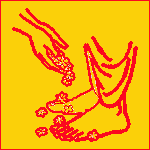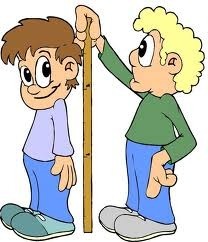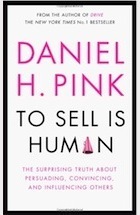Raj Shankar's Blog, page 44
July 24, 2013
Is passion and desperation same?
Both seem to be a dire thirst for something. Both seem to drive people to go beyond their known boundaries. Both well up  extra energies from inside to give that extra push.
extra energies from inside to give that extra push.
Then where’s the difference?
Desperation is satiated when fed. Passion gets more hungry when fed.
Desperation: A man who is hungry for three days sees food – he acts out of desperation. Goes to any extent to get that piece of bread. His hunger is satiated. His desperation disappears.
Passion: A man is hungry for writing his first book – he acts out of passion. He writes his first book. His hunger is whet. His passion swells.
Do you see the difference???
Its not just BIG, its HUGE!!


Vedantic Wednesday: On Guru Purnima
It’s been a week of celebration. Many of us in a variety of manner have expressed our gratitude to our Guru, on the occasion of Guru Purnima. I too had an opportunity to meet my guru this Monday, the day of Guru Purnima to express my gratitude towards his benevolence and the silent shaping of my thoughts and actions.
Guru Purnima. I too had an opportunity to meet my guru this Monday, the day of Guru Purnima to express my gratitude towards his benevolence and the silent shaping of my thoughts and actions.
In general, Guru is a much needed person in our quest for any type of knowledge. But he gains immense significance when it comes to our spiritual pursuits. In this Guru influences us in two key ways. First he holds our hands as he opens to us slowly and systematically questions that lead us to unravel the mysteries that lie deep within. Second, he holds our hands as we falter in the journey, tend to slip back into the earlier ways or doubt the tenacity of truth. He tells us through silence that he is there for us and with us in our journey.
On this occasion of Guru Purnima, let’s salute the galaxy of sages and masters who have taken it upon themselves to uplift mankind by patiently holding our hands and leading us to the altar of higher evolution. Let’s take a minute to express our gratitude to the graciousness of our guru-shishya parampara that has enabled transferring of the highest knowledge so faithfully across so many generations - a miracle indeed in itself!


July 22, 2013
How to enable people find you?
I keep getting requests on how to build a good network? How to get contacts? How to make people notice us? All of these  questions become relevant in today’s landscape because:
questions become relevant in today’s landscape because:
(a) there is greater access to people and institutions
(b) there is lesser attention with everybody
(c) there are too many people / objects vying for this reduced and further reducing attention span
So in this absolutely competitive attention grabbing situation how are you going to get noticed?
While all of the above has changed, the rules of who gets noticed has not changed! Look around and see who is getting attention. It is the person who is most visible. It is the person who makes the most useful contribution. It is the person who is easily accessible. It is the person who is interesting. It is the person who is most interested. It is the person who you can relate to.
In earlier days many of the links between two people were controlled by various agencies – namely advertisers, PR agencies, executive assistants, etc.,. But with the internet in place, most (if not all) of these links have been eliminated. Any two people can now be easily connected almost directly. But why are you then not able to find the right person and also get found? The problem is with some of the absolute issues. Ask yourself the following questions before complaining and giving up:
Are you doing work that deserves attention?
Are you consistent at what you are doing? OR Are you holding on to that one thing and waiting to be found?
Are you talking about your ideas passionately?
Are you talking about your ideas enough and frequently?
Are you meeting enough people who share similar interests?
Are you on the right mediums where these ideas can be found?
These are just the questions to begin with! If you are not doing enough, probably you are not doing enough to be found. In today’s world of permission driven attention, if you don’t get permission, you are not near being found. And after gaining the permission, if you are not able to hold the attention by being genuinely passionate about what you do – you have lost the connection forever.


July 21, 2013
Why should you go to school?
Since the time I started teaching I have been asking this question to literally every batch I teach. Since I teach mostly at the post graduate level I assumed it must be the most matured answers I get. Surprisingly when I worked with a bunch of school kids, they seemed to have better answers. The school kids went to school “to learn and be taught” while the post graduate students went to school “to get a degree and a job”!!
post graduate level I assumed it must be the most matured answers I get. Surprisingly when I worked with a bunch of school kids, they seemed to have better answers. The school kids went to school “to learn and be taught” while the post graduate students went to school “to get a degree and a job”!!
I wonder how when the same kids grow up, the answer changes from being liberal at school to more servile at college! From wanting to be taught we move on to get a job. From wanting to learn we move on to getting a degree. Somewhere along the way we are losing out on the underlying need to go to school i:e the place of formal learning. What should school be for? Especially in today’s world where most of the information part of the subjects can be learnt sitting at home on the laptop – why should we spend time going to school? How should we spend time at school?
Face to face time at school between teacher and student should be treated with care. It should be spend in reflection, contemplation and discussions. The more discussions, the more the perspectives to look at the same body of knowledge. It is by looking differently at the same set of questions that we keep improving our understanding of the world and its functioning. It is through this same method that we solve many of the challenges that people face in the world. All this enables enlargement of our thinking faculty. This leads to more open minded citizens for the future.
So fundamentally schools are places where people are taught how to think? These are places where people are allowed to learn how to think? Once they learn “how to think” they must embark on the path that excites them the most. This will show the world more places.
Going to school for anything else is actually not using it for the right purpose.
Think about it!!


July 20, 2013
Interesting Links This Week: 21st July 2013
The favorites of this week:
8 Senior Executives share their thoughts on 8 different tips to bring some order to this chaotic lifestyle and some sanity too.  Link: http://www.fastcompany.com/3012559/unplug/8-ways-to-bring-sanity-to-your-crazy-wired-life?partner=newsletter
Link: http://www.fastcompany.com/3012559/unplug/8-ways-to-bring-sanity-to-your-crazy-wired-life?partner=newsletter
Should you get off the internet for sometime? Will that be good – how? What does getting off the internet mean? Can you handle it? Some experiences from one who actually tried it. Link: http://www.fastcompany.com/3012521/unplug/baratunde-thurston-leaves-the-internet?partner=newsletter
Some interesting thoughts on how to break growth stall http://hbswk.hbs.edu/item/7180.html?wknews=02202013


July 19, 2013
Books and Me: To Sell Is Human
Author: Daniel H. Pink
“We’re all in sales Now!“ screams out Pink in the book’s back cover (incidentally this also in Pink)
As a person who believes firmly in the importance of the sales function, I would like to rewrite the above sentence as “We have been is Sales, are in Sales and will be in Sales – ALWAYS!”
As a strategy consultant, I get called upon invariably by entrepreneurs, CEO, business leaders, leaders of non-profit etc., to ask and answer the most abstract of questions relating to the enterprise. While helping them discover fresh perspective, I almost always bring in the aspect of translating strategy into actions. This then almost always brings up the question of sales.
My contention with every one of them has always been that nobody in the organization should be an exempted from selling. While most people agree on this issue, in reality the function remains segregated. Though I have always believed, it is in Pink’s book that I now have the complete, comprehensive and evidenced filled answer.
The book tracks, the evolution of sales, the importance of a sales man and how the changing environment is turning all of us into salesmen. The building up of the case to suggest we are all actually in sales now is very interesting. The interesting mega trends identified by him namely Entrepreneurship, Elasticity and Ed-Med lead on to a greater understanding and help build conviction as to why selling should be a skill on your resume.
Part – 2 of the book talks about the three new skills: Attunement, Buoyancy and Clarity. This fresh set of ABCs is all about how to move others, influence them and make sales happen. The qualities have been evolved, woven together and presented brilliantly. Many of the sources cited to bring strengthen the book’s case are drawn from extensive research in social sciences. The various sources cited in the book of experiments, journal articles and books provide very interesting insights into the science of understanding human beings. The book also provides tactical tips to put these into practice. Numerous examples and cases are provided from both B2B and B2C settings which make understanding easy. The world’s first elevator pitch was one of those anecdotes that I shall not forget in a long time.
The author’s extensive research and writing on pitching is absolutely mind-blowing and will be useful for every entrepreneur. Overall a very different type of book on sales; an important one as we enter an era of the long tail of buyers and sellers.


July 18, 2013
Checklist and To Do List
They are two totally different things. Knowing the difference can make you utilize the power of each of them in the most  useful situations.
useful situations.
Checklists: The power of checklists is immeasurable in repeated activities. Human beings naturally tend towards boredom when involved in repeated tasks. This can at times become too expensive. In these places checklists come to our rescue. Examples of places where a checklist is helpful are: pilots checking the plane before take-off; a surgeon checking the instruments before surgery; trek leader ensuring all instruments and gadgets are in place before the trek; etc. But there are also places where checklists can be very useful but are not often used, namely: checking if everything is planned before start of an event; checking if everything is in place before a business / personal travel; checking if everything is ready for a workshop; etc.,. The basic benefit of using a checklist is that there is less chances of missing something. While lack of a checklist can be dangerous (as in the case of surgeons and pilots) in some cases, in most cases it also helps in enhancing efficiency. Having a checklist most of all can reduce unnecessary stress on the human mind, which can then be put to much better use.
To-Do Lists: These are widely spoken about, but rarely used to its full potential. A simple to-do list is a list of items that you want to get done. When these are listed according to dates they help us track our commitments and when they are kept according to priority, they ensure we are working on our important things than just urgent tasks. Though one needs to understand the ‘how’ of using ‘to-do’ lists better, the bigger problem is actually with a softer issues – namely discipline. I haven’t come across too many people who are consistent users of this simple tool. The disciplined and consistent use of this tool ensures you never miss out on commitments. The mind forgets especially when it is flooded with numerous requests and proactive actions. The easiest way to ensure things get done is to put it down on a ‘to-do’ list and tick-it-off when done.
The beauty behind the above two types of lists are that they ensure that we are free to do what we are designed to do – namely ‘think’. Considering that most of us are also engaged with numerous people during the course of our work, the number of actions and communications are just rising every day. How to keep a tab on all of these? Lists! If they are repeated activities the best option is to create a ‘checklist of activities or items’ and ensure it is used every time a chance arises. If it is an action (call, email, meeting, write, etc) then put it into your ‘to-do’ list and have the discipline to look at it often to ensure it gets done.
Lists are powerful ways to get things done efficiently and effectively! The above two lists are widely used by productive and effective people across the world.
Think about it if you are not using one or are not consistent at using one!


July 17, 2013
Why is reading on the decline?
Nobody needs to state the fact that reading is on the decline. But look around and you will find that we are generating more information than we ever have had access to in the past. Ask working people and they will tell you they do not find the time to read anything. But then what about our students – whose vocation, duty and responsibility is to voraciously consume information and knowledge?
information than we ever have had access to in the past. Ask working people and they will tell you they do not find the time to read anything. But then what about our students – whose vocation, duty and responsibility is to voraciously consume information and knowledge?
So wheres the problem?
The problem at least with students who are reading much lesser than their predecessors are the following:
they are spending more time commuting than before
they are spending more time staying in touch than before
they are doing more activities than studying at college
they have less energy than before at the end of day
they have so much to do for others (teachers, college, exams, etc) than before
With all the above and more – even students ask me: ‘Sir, where is the time to read so much that you give us?’
I feel sad for these students because if there is anything that a student can do to build up a knowledge base – it is through reading. Only if they read widely they can see the world (including individuals, families, companies, other social groups) differently. They can observe and identify challenges to work on! They can then contribute through thinking and experiments!
But if there is no reading, it is like going back 50 years in time. Going back to start all over again.
I agree that we can always search solutions to specific questions on Google – but knowledge is not “what can be reached” it is “what has been reached”.
Think about it! I hope this will serve as a trigger for you to protect your reading time or your listening time (if you listen to books than read them).
I read recently that Warren Buffett, the legendary investor, still reads 6 hours a day and he is close to 90 years of age!! He has been doing this for over 60 years!! So where else do we need to go for proof! So where’s the delay – go pick up a book!


July 16, 2013
Vedantic Wednesday: Atman and Brahman – Second Part
Last week, I had shared with you one of the examples that we stumble upon regularly in advaita philosophy as it attempts to explain non-duality. Many of you had also shared with me how simple and hence stunning this example is. Though the philosophy attempts to explain the highest principles, as great teachers, our vedantic masters understood they have to take the help of simplicity to explain the complex of complex principles. Sharing below another example which more recent masters use to explain non-duality.
explain non-duality. Many of you had also shared with me how simple and hence stunning this example is. Though the philosophy attempts to explain the highest principles, as great teachers, our vedantic masters understood they have to take the help of simplicity to explain the complex of complex principles. Sharing below another example which more recent masters use to explain non-duality.
To understand the identical nature of Atman and Brahman one can observe the impact of electricity on various bulbs. When electricity (consciousness) passes through the 10 watt bulb, the illumination is that of 10 watts (microcosm). When the same electricity passes through a 1,000,000 watt bulb, the illumination is so many times bigger (macrocosm). The differences in the light produced by the two bulbs is because of the nature of the bulbs (upadhis) and has nothing to do with the electricity (consciousness principle). In a similar manner the microcosmic (jiva) and macrocosmic (Isvara) are due to their respective conditionings (updahis) of the microcosm (three bodies) and the macrocosm (cosmos). But just like the constant electricity the underlying Sat-Cit-Ananda principle remains the same and unchanged.


July 15, 2013
How do we know what you are interested in?
How do we know what you are interested in?
By what you routinely speak about!
By what you routinely write about!
By what you routinely ask about!
By what you routinely answer about!
By what you routinely search about!
By what you routinely share about!
By what you routinely discuss about!
By the way we are living life – it is rare to see one who is not a part of some group. Just do a quick check: Ask every person from your close group (people with whom you spend the most time) what they think is your real passion? You may be in for some surprise. You will hear an assortment of answers. Because for all that we want to do the thing we love, we rarely do anything about it. We are so fully engaged by all the things we need to do that the things we love to do always remain on our “to-do” list as “to-do”.
Why is it that even your own group (the close group of classmates, coworkers, colleagues, professional associates, club members, etc) don’t know what you are passionate about truly? Because you are not displaying your passion in any form. Its just in your mind and comes up late at night before going to sleep! It comes when you are alone for those few rare moments in a day. No one can help you even if they know who can help! So the next time you ask yourself why you are not getting the right linkages, you are not getting the right motivation, the right connections, the right support from all around – stop and ask yourself if people outside of yourself even know what you want?
This is equally applicable to businesses as much as it is for individuals!
Think about it!!






